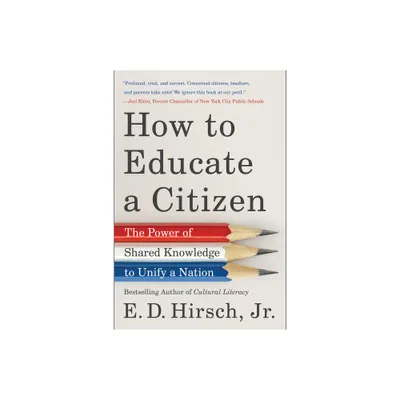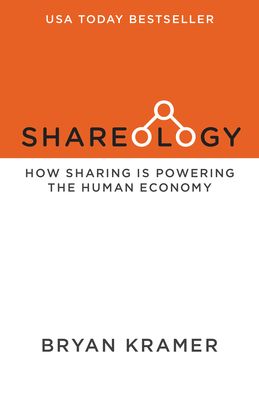Home
How to Educate a Citizen: The Power of Shared Knowledge Unify Nation
Loading Inventory...
Barnes and Noble
How to Educate a Citizen: The Power of Shared Knowledge Unify Nation
Current price: $29.99


Barnes and Noble
How to Educate a Citizen: The Power of Shared Knowledge Unify Nation
Current price: $29.99
Loading Inventory...
Size: Audio CD
*Product Information may vary - to confirm product availability, pricing, and additional information please contact Barnes and Noble
“Profound, vital and correct. Hirsch highlights the essence of our American being and the radical changes in education necessary to sustain that essence. Concerned citizens, teachers, and parents take note! We ignore this book at our peril."
— Joel Klein, former Chancellor of New York City Public Schools
Now in paperback, the bestselling author of
Cultural Literacy
delivers a powerful manifesto on the failures of America’s early education system and its impact on our current national malaise, advocating for a shared knowledge curriculum students everywhere can be taught—an educational foundation that can help improve and strengthen America’s unity, identity, and democracy.
In
How to Educate a Citizen
, E.D. Hirsch continues the conversation he began thirty years ago with his classic bestseller
Cultural Literacy,
urging America’s public schools, particularly at the elementary level, to educate our children more effectively to help heal and preserve the nation. Since the 1960s, our schools have been relying on “child-centered learning.” History, geography, science, civics, and other essential knowledge have been dumbed down by vacuous learning “techniques” and “values-based” curricula; indoctrinated by graduate schools of education, administrators and educators have believed they are teaching reading and critical thinking skills. Yet these cannot be taught in the absence of strong content, Hirsch argues.
The consequence is a loss of shared knowledge that would enable us to work together, understand one another, and make coherent, informed decisions. A broken approach to school not only leaves our children under-prepared and erodes the American dream but also loosens the spiritual bonds and unity that hold the nation together. Drawing on early schoolmasters and educational reformers such as Noah Webster and Horace Mann, Hirsch charts the rise and fall of the American early education system and provides a blueprint for closing the national gap in knowledge, communications, and allegiance. Critical and compelling,
galvanizes our schools to equip children with the power of shared knowledge.
— Joel Klein, former Chancellor of New York City Public Schools
Now in paperback, the bestselling author of
Cultural Literacy
delivers a powerful manifesto on the failures of America’s early education system and its impact on our current national malaise, advocating for a shared knowledge curriculum students everywhere can be taught—an educational foundation that can help improve and strengthen America’s unity, identity, and democracy.
In
How to Educate a Citizen
, E.D. Hirsch continues the conversation he began thirty years ago with his classic bestseller
Cultural Literacy,
urging America’s public schools, particularly at the elementary level, to educate our children more effectively to help heal and preserve the nation. Since the 1960s, our schools have been relying on “child-centered learning.” History, geography, science, civics, and other essential knowledge have been dumbed down by vacuous learning “techniques” and “values-based” curricula; indoctrinated by graduate schools of education, administrators and educators have believed they are teaching reading and critical thinking skills. Yet these cannot be taught in the absence of strong content, Hirsch argues.
The consequence is a loss of shared knowledge that would enable us to work together, understand one another, and make coherent, informed decisions. A broken approach to school not only leaves our children under-prepared and erodes the American dream but also loosens the spiritual bonds and unity that hold the nation together. Drawing on early schoolmasters and educational reformers such as Noah Webster and Horace Mann, Hirsch charts the rise and fall of the American early education system and provides a blueprint for closing the national gap in knowledge, communications, and allegiance. Critical and compelling,
galvanizes our schools to equip children with the power of shared knowledge.


















